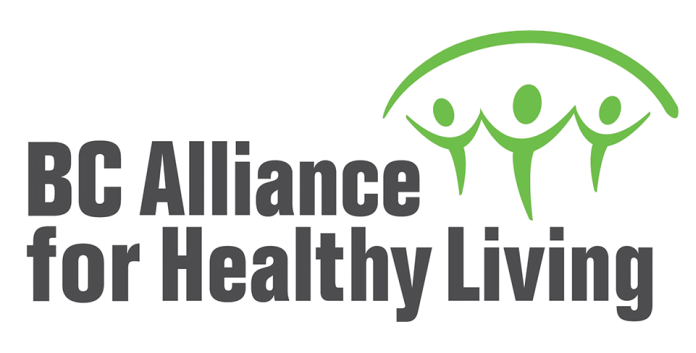Ahead of the upcoming election, the BC Alliance for Healthy Living (BCAHL) reached out to political parties to engage in an important conversation about the health and well-being of British Columbians. At BCAHL, we believe that improving public health requires leadership, collaboration, and a commitment to fostering environments that promote both physical and mental wellness.
This conversation is informed by our "Healthy and Resilient BC" policy guide, which highlights key areas essential for preventing chronic disease, supporting healthy aging, and improving mental wellness—all while easing the strain on our healthcare system. This guide is based on four key pillars:
- Building Resilient Communities: that include affordable housing, greenspace, parks and recreation opportunities as well as other social infrastructure such as daycares, immigrant services and seniors’ programs.
- Poverty Reduction to Prevent Disease: with income security measures and supports that ensure all people in BC have the basics necessary for a healthy life.
- Healthy Food for All: to address food security and ensure all people in BC have the necessary food skills and access to an affordable, nutritious diet.
- Healthy Clean Air: with the reduction of tobacco and vapour products, particulate matter from transportation sources and increasing tree coverage in urban areas.
We sent a questionnaire to BC’s political parties, inviting them to outline their policy commitments on these important issues. We are pleased to share the responses from the BC NDP and BC Greens. The Conservative Party of BC has not yet responded, but we will make their answers available once received.
Survey Questions for BC’s Political Parties:
1. Thinking about health and wellness beyond the healthcare system, what plans does your party have to reduce chronic disease which currently affects over 35% of British Columbians and is primarily from risk factors related to diet, activity and smoking?
2. What policy measures or investments would your party implement to expand the availability of affordable housing?
3. Will your party invest in social infrastructure in areas with growing populations or where new housing is built? (e.g.: recreation facilities, parks, daycares, immigrant services, seniors’ programs)
4. How will your party address the youth vaping epidemic? What is your party’s position on tobacco reduction? (e.g.: banning flavourerd vapes, expanding smoke-free housing or increasing the legal age of purchase?)
5. What other measures will your party put in place to improve air quality? (e.g.: public and active transportation, trees and greenspace in urban areas)
6. What policies or programs would your party advance to improve food security and the availability of affordable healthy foods?
7. Does your party have a plan to reduce poverty? (e.g.: raise Income Assistance rates to account for the cost of healthy food and market rental rates or offer subsidies so those with low-incomes can access physical activity programs?
Now, we are pleased to share the parties' visions and proposed actions with you. We hope that these responses will spark meaningful dialogue as we work towards building a healthier, more resilient future for British Columbia.
Read on to see how BC’s political leaders plan to build a Healthy and Resilient BC.
